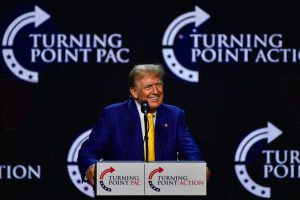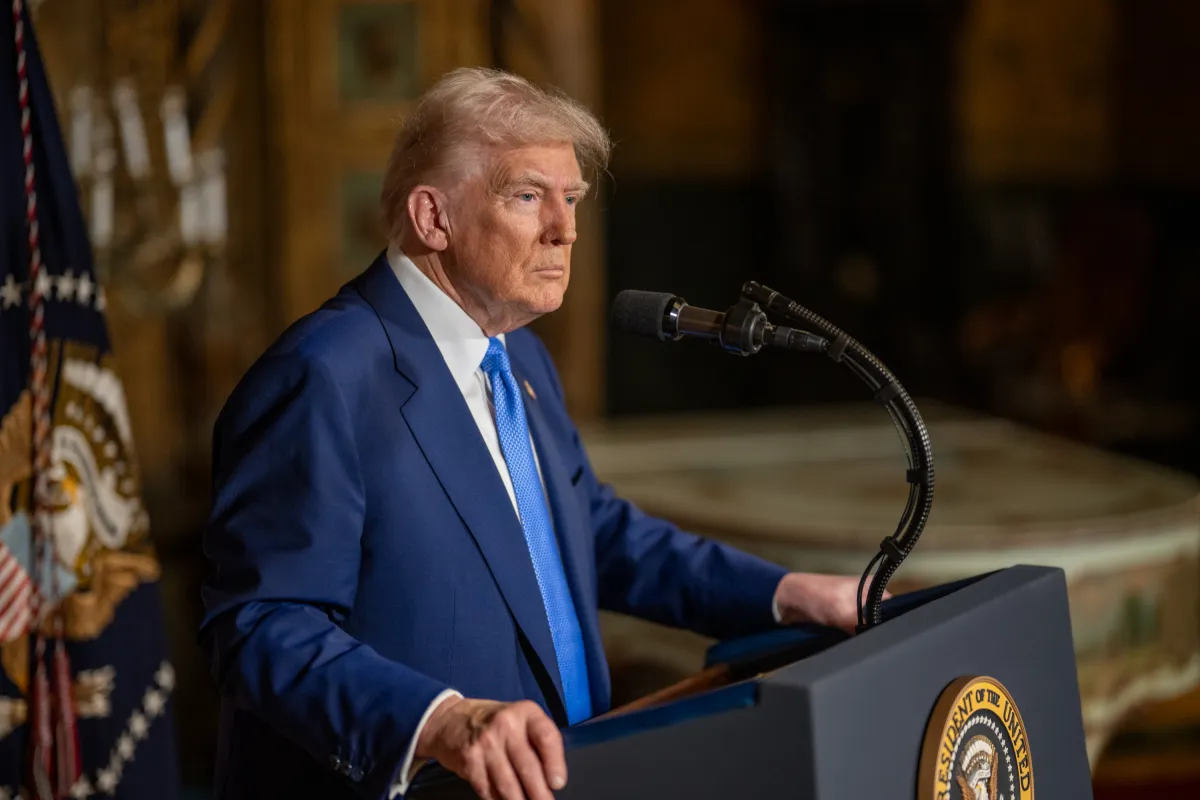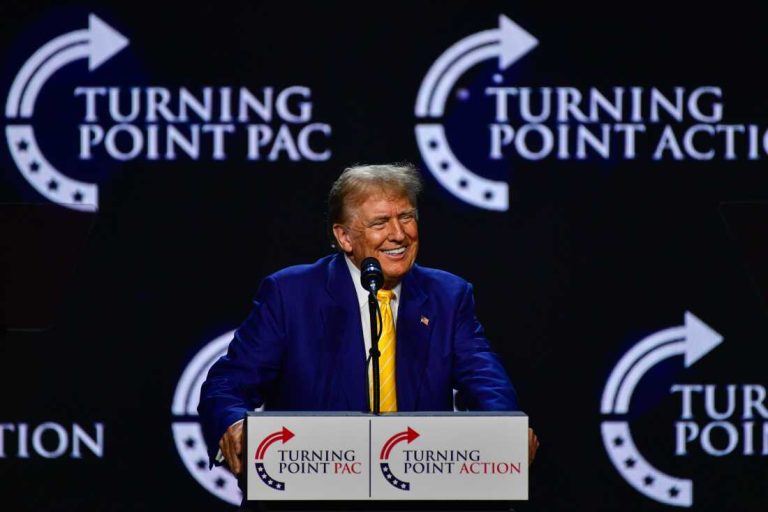Donald Trump’s latest announcement about law enforcement in the nation’s capital has triggered a wave of outrage, with critics demanding impeachment and warning of an authoritarian shift in policing.
On Monday, August 11, the president revealed a sweeping 30-day security plan for Washington, D.C., following a meeting with officials to discuss how to make the city “safer and more beautiful.” Central to the move is the deployment of 800 National Guard troops to patrol the streets and a federal takeover of the city’s police force.
Trump declared a “public safety emergency” and described D.C. as a haven for “illegal alien criminals” plagued by “lawlessness” and violent crime. He claimed homicide rates in the capital were higher than in cities such as Bogotá or Mexico City, despite official statistics showing violent crime at a 30-year low.
Before unveiling the initiative, Trump posted on his Truth Social platform:
“Before the tents, squalor, filth, and Crime, it was the most beautiful Capital in the World. It will soon be that again.”
A Federal Takeover of Local Policing
Invoking Section 740 of the District of Columbia Home Rule Act, Trump announced that federal authorities would temporarily assume control of D.C.’s Metropolitan Police Department. The measure, he said, would allow officers to operate without the restrictions he believes have hindered effective policing.
In a press conference, Trump argued that law enforcement has been disrespected for years and promised a new era of forceful action.
“That’s the only language they understand,” he said, referring to alleged offenders. “They like to spit in the face of the police. You spit, and we hit, and they can hit real hard. Now they are allowed to do whatever the hell they want.”
This statement, suggesting that officers can use virtually unlimited force when confronted with hostility, sparked immediate backlash. Critics called it a dangerous precedent and an open invitation for excessive violence.
Pushback From Local Leaders and Residents
Washington, D.C., Mayor Muriel Bowser described the move as “unsettling and unprecedented” but admitted she was not entirely surprised given Trump’s past rhetoric.
Online, the response was even sharper. On Reddit, one user wrote, “The Trump police state is upon us.” Another said, “What an evil bard. F you, Trump voters.” Others accused the president of laying the groundwork for a permanent shift toward authoritarian policing.
One commenter warned: “Trump is normalizing the idea that police are so routinely the victims of physical abuse that they need extra special permission to break some skulls. At NO POINT have police been told, ‘you have to let citizens spit on you.’ To use it as justification to crank up state violence is a taking. It’s not a slippery slope. It’s a road map.”
Protests have already begun in the capital, with demonstrators holding signs against what they see as a militarized crackdown on civil liberties.
Trump’s Framing: “Liberation Day”
Despite the pushback, Trump maintains that his actions are necessary to “rescue” the capital from “crime, bloodshed, bedlam, and squalor.” He framed the operation as a turning point:
“This is liberation day in D.C., and we’re going to take our capital back.”
According to the plan, the National Guard and federal police control will remain in place for 30 days.
Legal Battles Over National Guard Deployments
The announcement comes as Trump faces legal scrutiny over a similar deployment earlier this year. In June, the president sent 5,000 National Guard troops to Los Angeles in response to immigration protests—without the consent of California’s governor. Three hundred troops still remain there.
It was the first time in six decades that a president had ordered such a deployment without a state’s approval. Critics argue the move violated long-standing principles that limit federal military involvement in domestic law enforcement.
A federal judge in San Francisco, Charles Breyer, is currently hearing a case to determine whether Trump broke the law. The court is considering whether the military was used to enforce domestic law in California and whether there’s an ongoing threat it could happen again.
The State of California has argued in legal filings that “it simply is not the law that Defendants may deploy standing armies to the streets of California while California is powerless to do anything about that clear violation of the most fundamental principles of our Nation’s founding.”
Trump’s legal team, however, insists that the National Guard’s involvement is fully supported by existing statutes, framing it as an appropriate and lawful response to unrest.
What Comes Next
For now, D.C. is under an unprecedented level of federal control. Supporters of the move argue it will restore order and make the city safer, while opponents see it as a step toward authoritarian rule. The coming weeks will likely test both the limits of presidential authority and the public’s tolerance for aggressive policing measures.
As legal challenges play out in California and protests grow in the capital, the political fallout could shape the national conversation on civil liberties, federal power, and the role of law enforcement for months to come.

James Jenkins is a celebrated Pulitzer Prize-winning author whose work has reshaped the way readers think about social justice and human rights in America. Raised in Atlanta, Georgia, James grew up in a community that instilled in him both resilience and a strong sense of responsibility toward others. After studying political science and creative writing at Howard University, he worked as a journalist covering civil rights issues before dedicating himself fully to fiction. His novels are known for their sharp, empathetic portraits of marginalized communities and for weaving personal stories with broader political realities. Jenkins’s breakout novel, Shadows of Freedom, won national acclaim for its unflinching look at systemic inequality, while his more recent works explore themes of identity, resilience, and the fight for dignity in the face of oppression. Beyond his novels, James is an active public speaker, lecturing at universities and participating in nonprofit initiatives that support literacy and community empowerment. He believes that storytelling is a way to preserve history and inspire change. When not writing, James enjoys jazz music, mentoring young writers, and traveling with his family to explore cultures and stories around the world.









